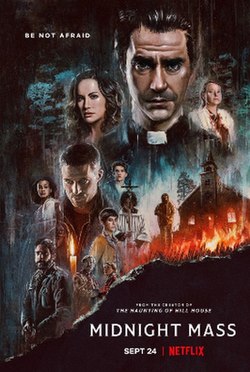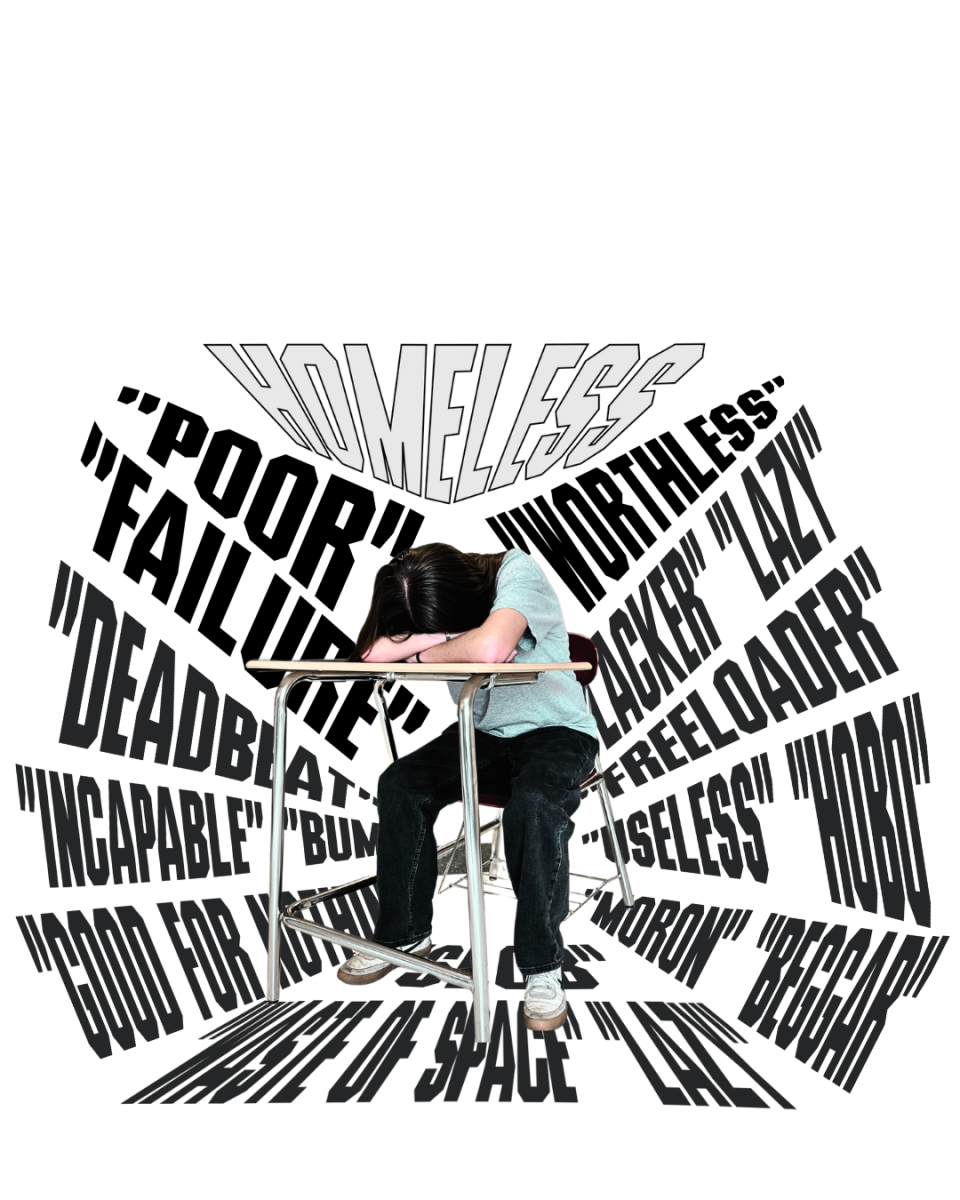“Midnight Mass” works as small-town horror tale of biblical proportions

Photo courtesy of IMDb.
December 7, 2021
Following the success of The Haunting anthology, director Mike Flanagan’s latest Netflix show ditches ghosts and instead focuses on something much scarier: Catholic guilt. The seven-episode mini-series boasts an impressive ensemble of familiar faces from past Flanagan projects, including Kate Siegel, Rahul Kohli, Samantha Sloyan, and Henry Thomas. Released in late September to critical acclaim, Midnight Mass depicts the horror that unfolds in an isolated fishing village after an enigmatic young priest arrives harboring a dark secret.
The show leans into its religious theme straight off the bat, with an opening shot of the Ichthys symbol, or “Jesus fish,” on a car bumper, illuminated by the red and blue lights of a police car and ambulance. Drunk driver Riley Flynn has just killed a teenage girl. Episode one, titled “Book I: Genesis” sets up the series’ deceptively simple premise: troubled man returns to sleepy hometown following tragedy, the townies are odd, and something is very wrong. While the first episode is slow-moving and the weakest of the seven, it effectively serves the purpose of introducing the audience to the show’s major players, of which there are over a dozen.
There’s Riley, played by Zach Gilford, freshly out of prison and haunted by visions of the young woman whose life he accidentally took. Then there’s his childhood love Erin Greene, played by Kate Siegel, who has also returned to the dingy town they swore they’d escape. Other important residents of Crockett Island include Sheriff Hassan, the quietly heroic police officer who delivers one of the most profound monologues in a show that is overflowing with them, and Leeza, the mayor’s teenage daughter who becomes the subject of an apparent miracle. As is inevitable in a story with this many characters, some shine more than others. The mysterious Father Paul and the fatally devout Bev Keane are the two standouts of the series, while Dr. Sarah Gunning and the town’s gang of teens feel much underutilized.
The real triumph of Midnight Mass lies in its slow-burn horror. Each episode works as a piece in the puzzle, revealing sinister details bit by bit and without full context, until the audience is swept up in the mystery, just as the characters are swept up in the preachings of Father Paul. Mike Flanagan proves himself to be a master of this kind of “two plus two” storytelling, where viewers are left to fill in the gaps themselves instead of being bombarded with jumpscares and graphic violence. This creates the kind of complex and nuanced horror story that is often lacking in today’s media. Scenes of dead cats and vampiric clergymen are merely stepping stones on the way to reveal the true terror of Crockett Island: humanity.
One of the show’s bigger secrets is revealed in the particularly well-crafted “Book III Psalms.” Accompanied by eerie choral music and striking biblical imagery, Father Paul narrates from a confessional and utters perhaps the most memorable line of the show: “Bless me, Lord, for I am going to sin.” In this third episode, Midnight Mass establishes that it’s not your average “mysterious town with a mysterious monster” tale as it weaves together vampirism and the Christian phenomenon of the stigmata.
The series is impressively well-acted throughout. Hamish Linklater as Father Paul delivers an unsettlingly subtle performance that works cleverly in contrast to Samantha Sloyan’s intensely pious Bev Keane. Even more chilling than the show’s blood-sucking humanoid angel is the rabid, bible quoting Bev, who positions herself as the marionettist of the priest. After a few episodes, however, the story becomes oversaturated with long, emotionally charged speeches from its characters. The monologues reveal another layer of these people, and while it certainly works to differentiate individuals in such a sprawling cast, the once compelling orations lose their magic after a while.
A supernatural horror story rooted in human drama, Midnight Mass is like Jaws meets American Horror Story meets This is Us with a dash of religious fanaticism. While the final episode’s hokeyness dulls the potential intensity and profundity of the series, “Book VII: Revelations” somewhat redeems itself with stunning cinematography and a haunting last line. The end result is a thought-provoking allegory for addiction and humankind’s frightening tendency to justify atrocities in the name of faith.











Tom koch • Apr 2, 2022 at 9:55 am
Great review Sadie. Tom